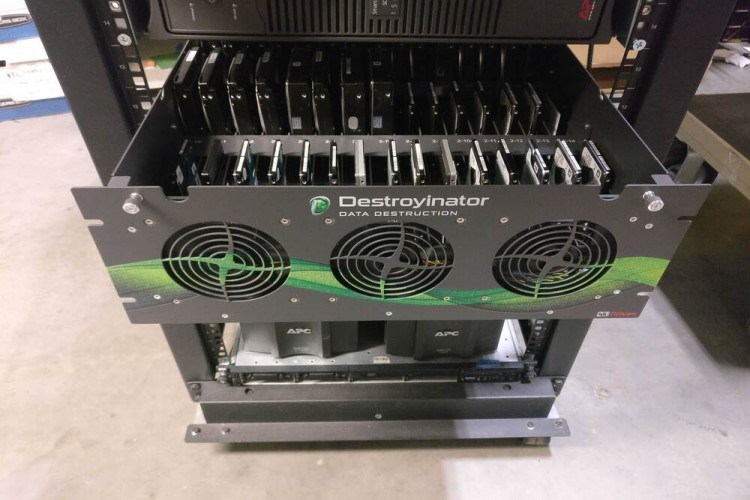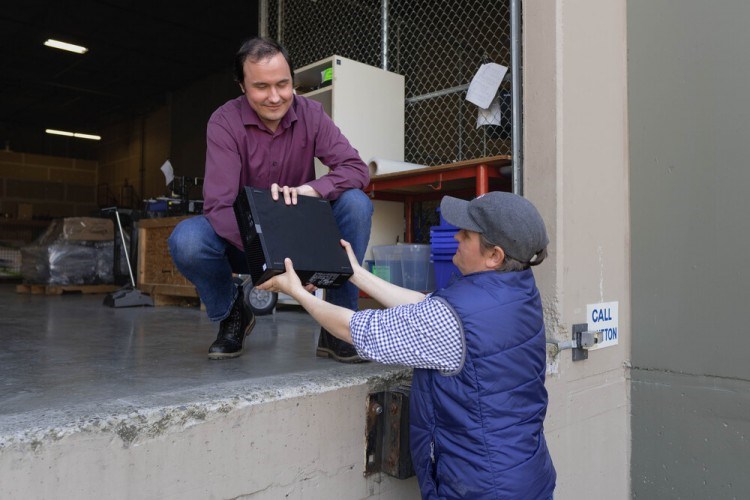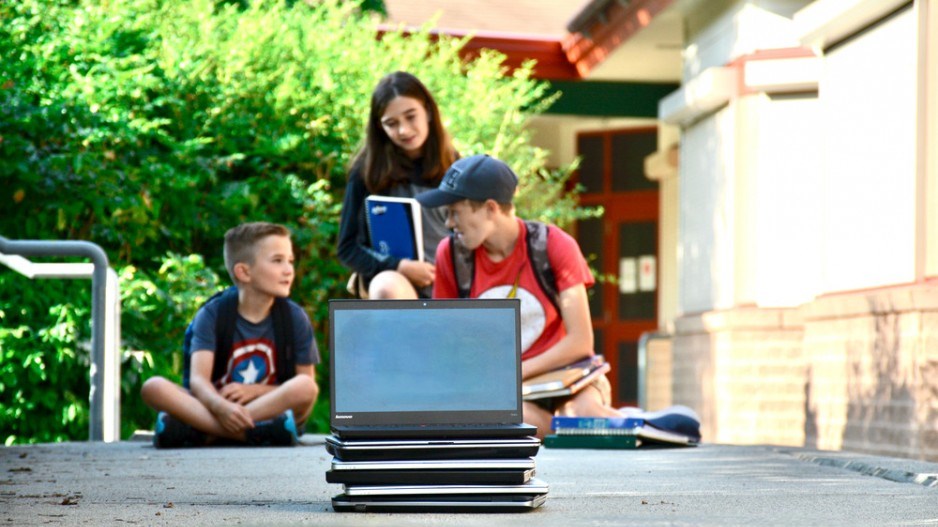The tools of the trade include terms like the Destroyinator, KillDisk, CrystalDisk, and the list goes on.
However, this is not a plot from a James Bond film.
Instead, these are the many safeguards employed by BC Technology for Learning Society, a Burnaby-based registered charity that refurbishes and re-distributes all types of tech tools for schools, libraries, not-for-profit organizations, Indigenous communities and eligible low-income individuals.
Approaching 30 years in operation, the society acts as a type of middleman in the tech sphere that facilitates the re-use of computers, laptops, monitors, printers, and other electronic items that typically have a short shelf life and is the only BC-based refurbisher currently qualified under the comprehensive standards of the Electronics Reuse & Refurbishing Program (ERRP).
Governments, businesses and individuals donate these items, which are then redistributed in a simple, straightforward process that takes roughly two weeks from start to finish.

“Our work directly supports learning and engagement opportunities for people without computer technology at home,” explains Mary-Em Waddington, the society’s executive director. “It also supports youth developing their technological skills and building their resumes through work experience placements, and as a quality computer reuse program has a very strong environmental impact.”
Central to the society’s mandate is security and ensuring that all data is completely erased before a piece of tech goes to its new home.
Enter the Destroyinator, KillDisk and CrystalDisk, tools that wipe up to 45 hard drives at one time over one, three or seven layers of overwrite protection. These security parameters are monitored via third-party audits.
“We’re not going to monkey around with anybody’s data – we take this very, very seriously,” Waddington says. “This is a very stringent standard that we hold ourselves to.”
The entire process takes roughly two weeks and is available for clients and donors across B.C. Companies can drop off their excess tech at the society’s headquarters in Burnaby or have the equipment picked up for free. Hard drives are wiped, equipment is assessed and inventoried, machines are built to spec and off they go.
The newly refurbished computers come with Windows 10 or Microsoft Office in some cases.

Outside of the philanthropic nature of the society, there are also numerous environmental benefits.
While some companies may only use laptops for three years, this program extends that lifespan to six or eight years or more. Minerals needed for laptops that require digging into the Earth need not be mined, chemicals aren’t used, and water quality is preserved. It’s a solution that also bypasses the need for tech waste to be shipped abroad for disposal.
Roughly 5,000 to 6,000 computers and laptops are redistributed across B.C. annually, and the society will pass the 200,000 mark next year.
“We’ve literally had people cry when they pick up their laptops – it makes me cry,” Waddington says. “Now they can stay in touch with their family, do their research or play their games. All of this is part of our social well-being.”
To learn more about the BC Technology for Learning Society, how the process works, and how to get involved, visit reusetechbc.ca.




